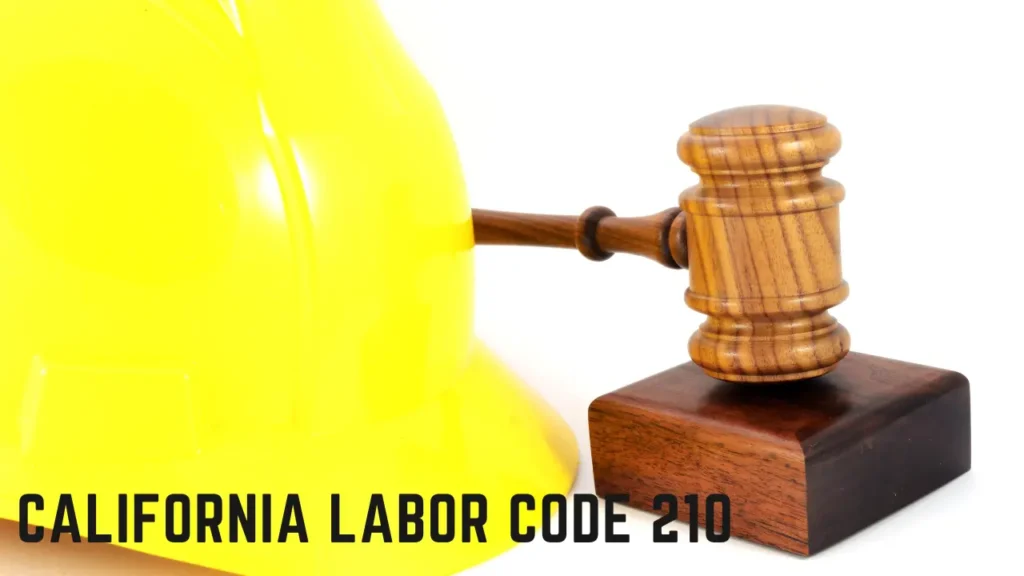Table of Contents
ToggleThe vagaries of the filing process, the consequential actions, the allocation of recovered penalties, and the interpretation of workers’ compensation provisions all create a compelling, multi-faceted discussion. Grasping these particulars can provide valuable insights for both employers striving for compliance and employees seeking justice, making the exploration of this statute’s depth and breadth both necessary and beneficial.
Understanding the PAGA Lawsuit Process
To comprehend the PAGA lawsuit process, one must understand it commences with the aggrieved employee filing a claim online with the Labor and Workforce Development Agency (LWDA) and serving it on the employer. This step is crucial as it initiates the legal journey. The LWDA then has a window of 65 days to decide whether to investigate the claim or not.
During this time, it is advisable for the complainant to consult with a qualified California labor law attorney to assess the validity and potential success of the case. If the LWDA chooses not to investigate, the employee can proceed with a civil lawsuit.
Key elements in this process include understanding the filing fees, potential waivers, and adhering to the one-year statute of limitations for PAGA lawsuits in California.
Legal References and Key Definitions
Understanding the intricacies of PAGA claims necessitates a thorough familiarity with legal references such as California Labor Code 2699, which provides for the imposition of civil penalties through PAGA lawsuits. This law is instrumental in regulating employers and protecting employees’ rights.
Key definitions to grasp include:
- PAGA: Private Attorneys General Act, empowering aggrieved employees to sue employers for labor code violations.
- Aggrieved Employee: An individual who has suffered from labor code violations.
- Civil Penalties: Monetary fines imposed on employers for labor law breaches.
- LWDA: Labor and Workforce Development Agency, the entity responsible for labor law enforcement in California.
These terms and references form the bedrock of understanding PAGA claims and their implications.
Identifying Employer Violations and Penalties
Building on the foundational knowledge of legal references and key definitions, it is crucial to examine specific employer violations that may trigger PAGA claims and the corresponding civil penalties prescribed by California labor law.
Employer violations can range from paying below the minimum wage, denying mandated meal breaks, to neglecting overtime compensation and workplace safety standards. The imposition of civil penalties is designed to deter employers from such transgressions and protect employee rights.
An initial violation incurs penalties of $100 per aggrieved employee per pay period, while subsequent violations escalate to $200. These penalties not only serve as a financial deterrent for employers but also fund labor law enforcement, empowering both employees and the Labor and Workforce Development Agency in safeguarding workers’ rights.
Distribution and Allocation of Civil Penalties
Upon successful prosecution of a PAGA claim, the allocation and distribution of the resulting civil penalties serve a dual purpose: funding labor law enforcement initiatives and compensating aggrieved employees. The Labor Code sets forth clear guidelines for this distribution:
- 75% of the penalties go to the Labor and Workforce Development Agency (LWDA). These funds are primarily used to enforce labor laws and regulations across the state, ensuring employers comply with their obligations.
- The remaining 25% is distributed amongst aggrieved employees, providing them with direct compensation for their employer’s violations.
- The LWDA also uses its share to fund educational initiatives, raising awareness about employee rights and employer responsibilities under the labor code.
- This structure incentivizes employees to report violations, while also bolstering the state’s labor law enforcement apparatus.
Workers’ Compensation Provisions and Procedures
While the allocation of civil penalties from a successful PAGA claim plays a significant role in labor law enforcement and compensating aggrieved employees, it is equally crucial to examine the provisions and procedures within workers’ compensation law. This facet of the labor code provides a specific remedy for employer liability in cases of workplace injury.
Workers’ compensation law, including sections such as 129.5 and 132a, offer exemptions from certain labor code sections, thus providing exclusive remedies. They necessitate that an aggrieved party provide the agency with a complaint copy promptly upon initiating a civil action post-July 1, 2016.
Additionally, labor code settlements require superior court review and approval, ensuring fair and adequate compensation for aggrieved employees.
Conclusion
In conclusion, Labor Code 2699 is a complex yet essential tool in enforcing labor laws in California. Its provisions, notably the PAGA lawsuit process, have significant implications for both employers and employees.
By understanding its nuances, including the distribution of civil penalties and workers’ compensation provisions, all parties can better navigate labor law issues.
This code, therefore, plays a crucial role in safeguarding fair labor practices in the state.















